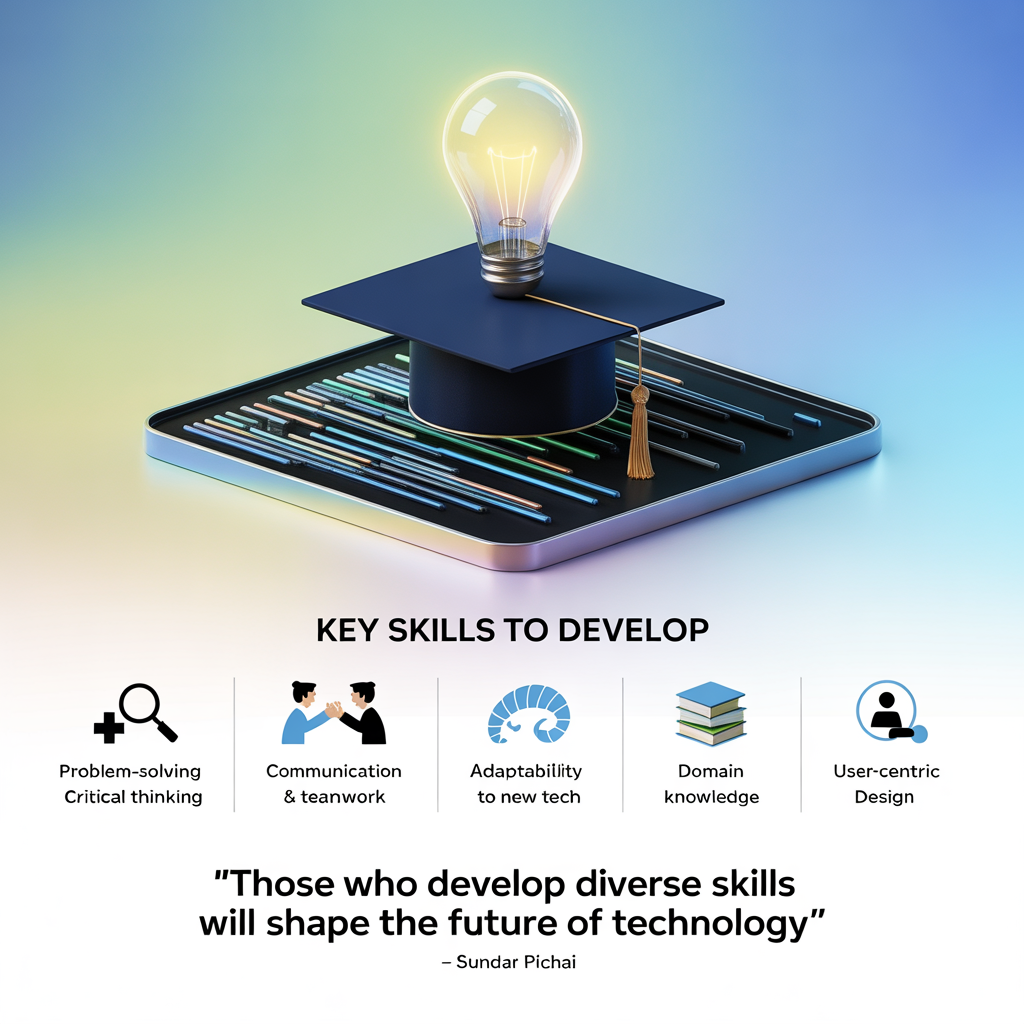The Need for Engineering Graduates Skills Beyond Coding
In the rapidly evolving technology landscape, engineering graduates skills beyond coding have become essential for career success. Google’s Android chief recently emphasized that while programming knowledge remains foundational, it is no longer sufficient to thrive professionally. As industries adopt new technologies and face complex challenges, graduates must also develop strong problem-solving abilities, effective communication skills, and adaptability to remain competitive and relevant.
The modern engineering workplace demands professionals who not only write efficient code but can also navigate real-world problems, collaborate with diverse teams, and continuously learn. This shift reflects a growing recognition that technical proficiency must be complemented by soft skills and practical knowledge to drive innovation.
Why Employers Demand More Than Coding Skills
In India, the technology sector continues to expand rapidly. According to a recent NASSCOM report, employers increasingly prioritize candidates with a blend of technical expertise and interpersonal skills. The report highlights that companies value attributes such as critical thinking, teamwork, and the ability to handle ambiguous or complex situations—skills that go beyond traditional coding.
This trend is visible in recruitment practices across major IT firms. Employers recognize that engineers equipped with strong communication and leadership skills are better suited to work in agile teams and contribute to business growth. They can also engage more effectively with clients and stakeholders, which is critical in a globalized economy.
Bridging the Gap Between Education and Industry
India produces over 1.5 million engineering graduates annually, according to data from the All India Council for Technical Education (AICTE). However, many graduates find themselves inadequately prepared for the demands of the industry. A significant gap persists between academic curricula, which often emphasize theory and coding, and the real-world skills employers seek.
The National Education Policy (NEP) 2020 addresses this gap by advocating a multidisciplinary education model that integrates practical skill development with academic learning. NEP encourages educational institutions to introduce internships, project-based learning, and soft skills training to help students develop a holistic skill set. Such reforms aim to produce graduates who can seamlessly transition into professional roles and contribute effectively.
Essential Skills for Engineering Graduates Beyond Coding

To thrive in today’s job market, engineering graduates need to focus on a combination of skills that complement their coding knowledge:
- Problem-solving and Analytical Thinking: Graduates should be able to analyze complex challenges, break them down into manageable parts, and devise creative, practical solutions. This skill is crucial for innovation and troubleshooting in technology projects.
- Communication and Collaboration: Being able to clearly express ideas, listen actively, and work well within teams is vital. Modern software development often involves cross-functional teams, making effective communication a key success factor.
- Adaptability: Technology evolves rapidly, and engineers must be prepared to learn new programming languages, tools, and methodologies. Flexibility and a growth mindset help graduates stay ahead in their careers.
- Domain-specific Knowledge: Understanding the business or industry context—whether it’s healthcare, finance, manufacturing, or others—enables engineers to design solutions that are more relevant and impactful.
- User-centric Innovation: Engineers who focus on user experience and needs can create technology that solves real problems, leading to greater product success.
Together, these skills equip graduates to become not just coders, but innovators and leaders in their fields.
Industry Practices Reflecting the Need for Broader Skills
Leading Indian IT companies like Tata Consultancy Services (TCS) and Infosys have revamped recruitment and training to emphasize soft skills alongside technical knowledge. These firms conduct assessments to evaluate candidates’ problem-solving ability, communication skills, and leadership potential.
Furthermore, they invest in continuous learning programs, workshops, and mentorship initiatives that encourage employees to develop beyond their coding expertise. This approach aligns with industry trends demanding engineers who can adapt to changing roles and technologies.
Government Initiatives Supporting Skill Development
The Indian government has launched various programs to bridge the skills gap and prepare the workforce for the future. The Skill India Mission promotes training in emerging technologies such as artificial intelligence, data analytics, and cybersecurity. These initiatives aim to complement formal education by equipping youth with practical skills essential for the evolving job market.
By encouraging multidisciplinary learning and soft skill development, government policies support a workforce capable of contributing to India’s digital economy and innovation ecosystem.
Preparing for a Future-Ready Workforce
India’s digital economy is projected to exceed $1 trillion by 2030, driving robust demand for engineers with diverse skill sets. The ability to combine coding expertise with problem-solving, communication, and domain knowledge will be critical for engineers who wish to advance and lead.
Graduates who proactively cultivate these skills will be well positioned to drive innovation, improve technology adoption, and create value across industries. This will also open doors to global opportunities and entrepreneurial ventures.
The Path Forward for Engineering Education
Academic institutions must continue evolving to produce graduates ready for dynamic tech careers. Integrating hands-on learning, industry collaborations, and multidisciplinary curricula can narrow the gap between education and employment.
Internships and live projects expose students to real challenges, while training in communication and teamwork fosters essential soft skills. Together, these strategies will help build a workforce that meets the demands of India’s burgeoning technology landscape.




